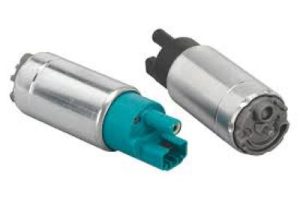The fuel pump can eventually be overheated and fail, especially under harsh operational conditions. Fuel pumps operate to maintain a specified range of fuel pressure to ensure combustion takes place smoothly and efficiently. In creating such pressure, the pump needs to be suitably cooled; this function is assisted by fuel surrounding the pump in the tank. When fuel levels fall below 1/4 tank, the pump does not receive sufficient cooling, which means operation at higher temperatures. Running a tank continuously low can cut the life of the pump from a typical 100,000 miles down closer to 60,000 miles because of the heat load on the internal components and rapid wear.
Fuel contamination can also increase the chances of overheating in the fuel pump. Particles of dirt, rust, or debris may collect in the bottom of a gas tank and gradually block the pump filter, thereby requiring the pump to work harder to sustain fuel flow. The added stress on the pump not only increases the internal temperatures but also reduces its efficiency, sometimes by 15 to 20 percent, thus increasing the chances of overheating and eventual failure. With time, the straining of pumps by clogged filters only worsens-a snowballing effect in which the pump needs to use more force that with time wears down internal parts.

Poor wiring and faulty connections are also types of electrical issues that can cause overheating. Fuel pumps operate on 12-volt electrical systems that require smooth flow in order to sustain a constant delivery of fuel. Wiring that is poor or voltage drops are the factors that are responsible for keeping a pump under less-than-ideal conditions; thus, producing more internal heat in trying to keep up with fuel demands. In particular, this can be very common in vehicles of an older category where wiring can easily get corroded or worn out. By upgrading this electrical problem, it lessens the chances of overheating of the pump and adds to its life.
Vehicles that have to be driven under high-performance conditions or in hot climates run an even greater risk from fuel pump overheating. High-demand applications increase the demands on the pump because it has to deliver fuel at a much higher rate of flow. These loads, beyond what the conventional pumps can always bear for long, lead to frequent overheating. In such cases, high-performance pumps, designed for higher flow rates and temperatures, are often recommended to offer durability and longevity.
As Carroll Shelby, a legend in the auto world, once stated, "Horsepower sells cars, but torque wins races," underlining the importance of dependable parts under stress. Being able to recognize early warning signs-such as sputtering, hard starts, or a lack of acceleration-can indicate overheating that's forcing the fuel pump to work too hard. That well-placed investment in a good Fuel Pump can assure the system will hold up to them, extending the pump's operational life and supporting the performance of the engine under so many different conditions.